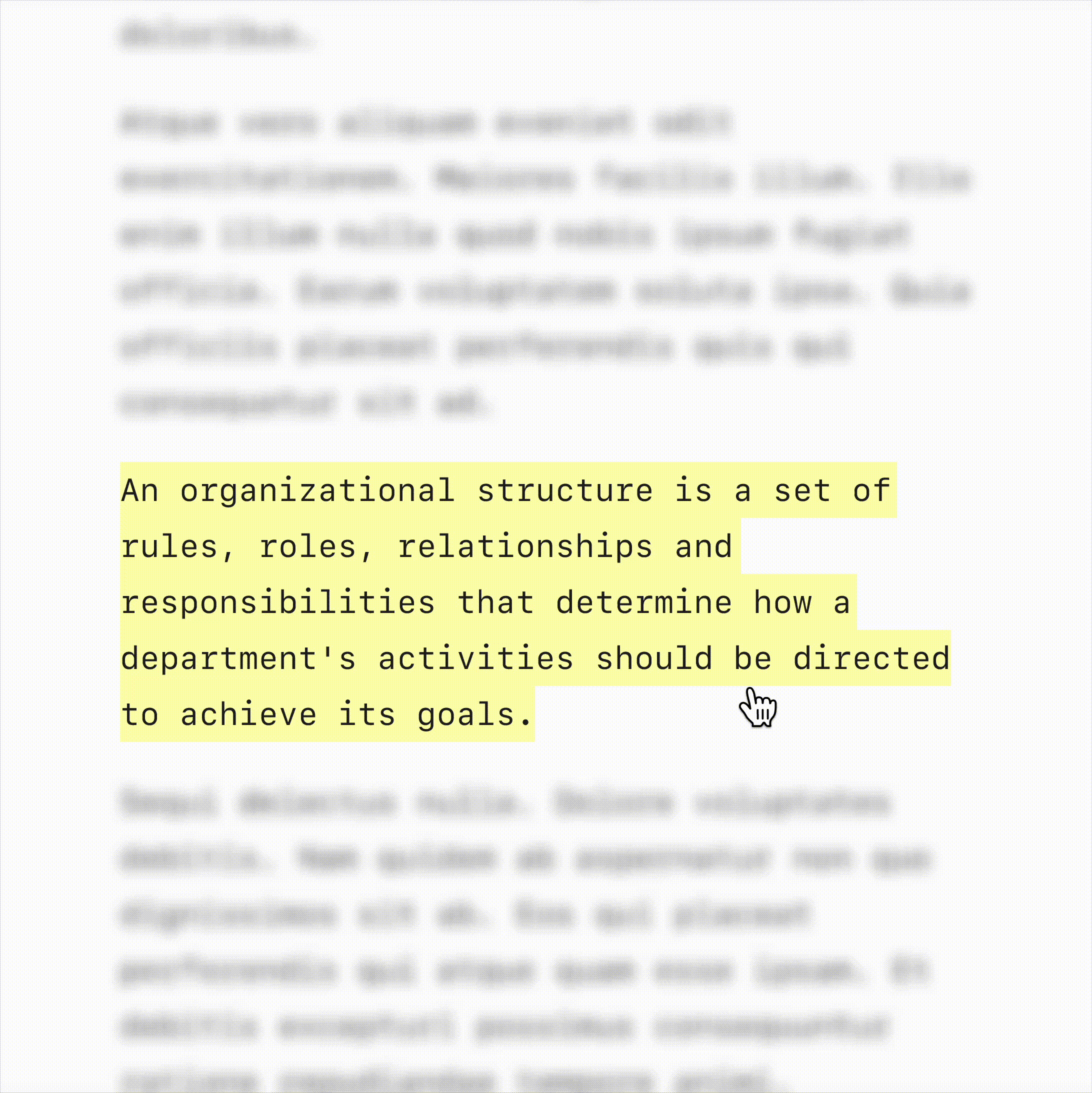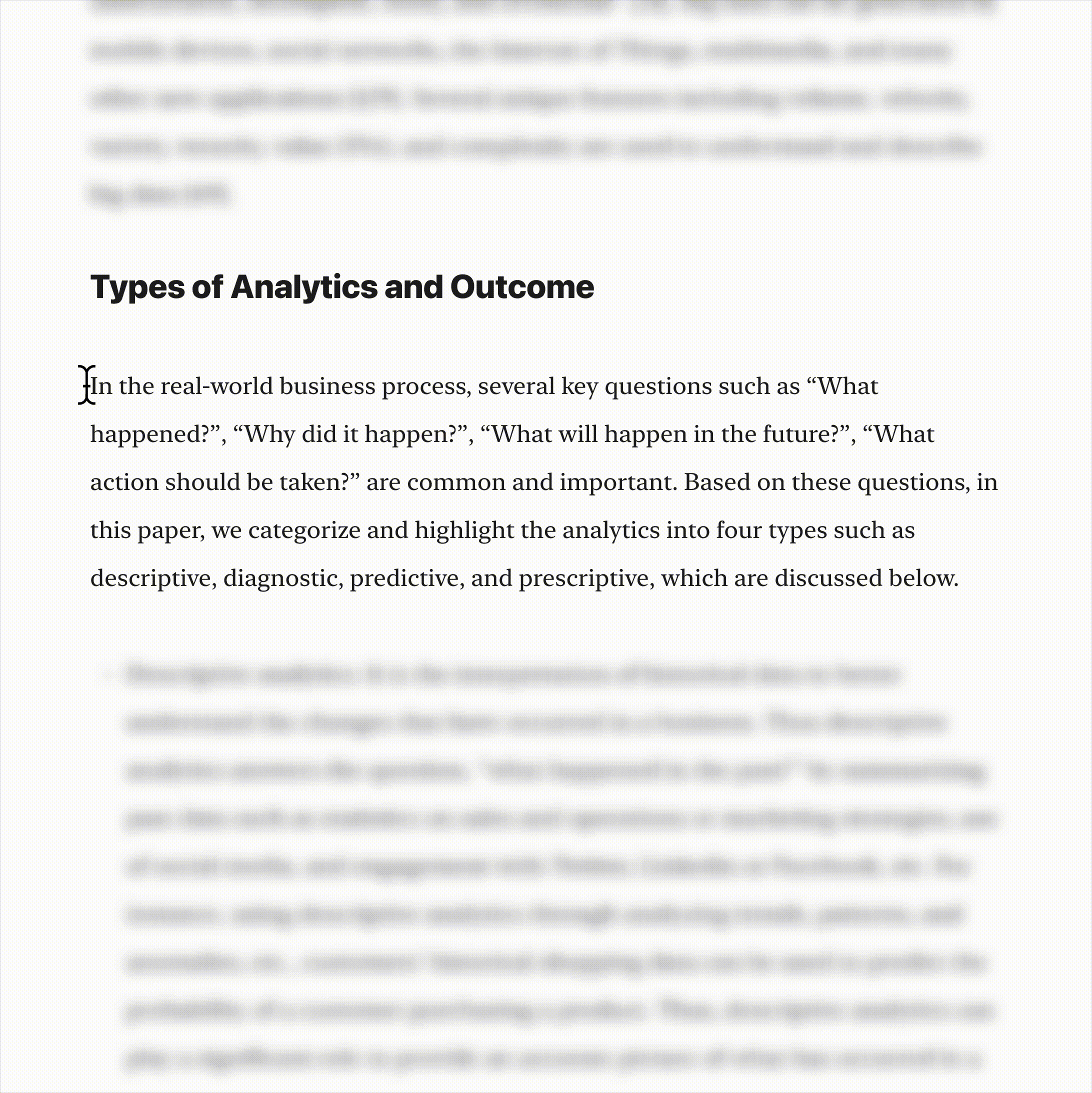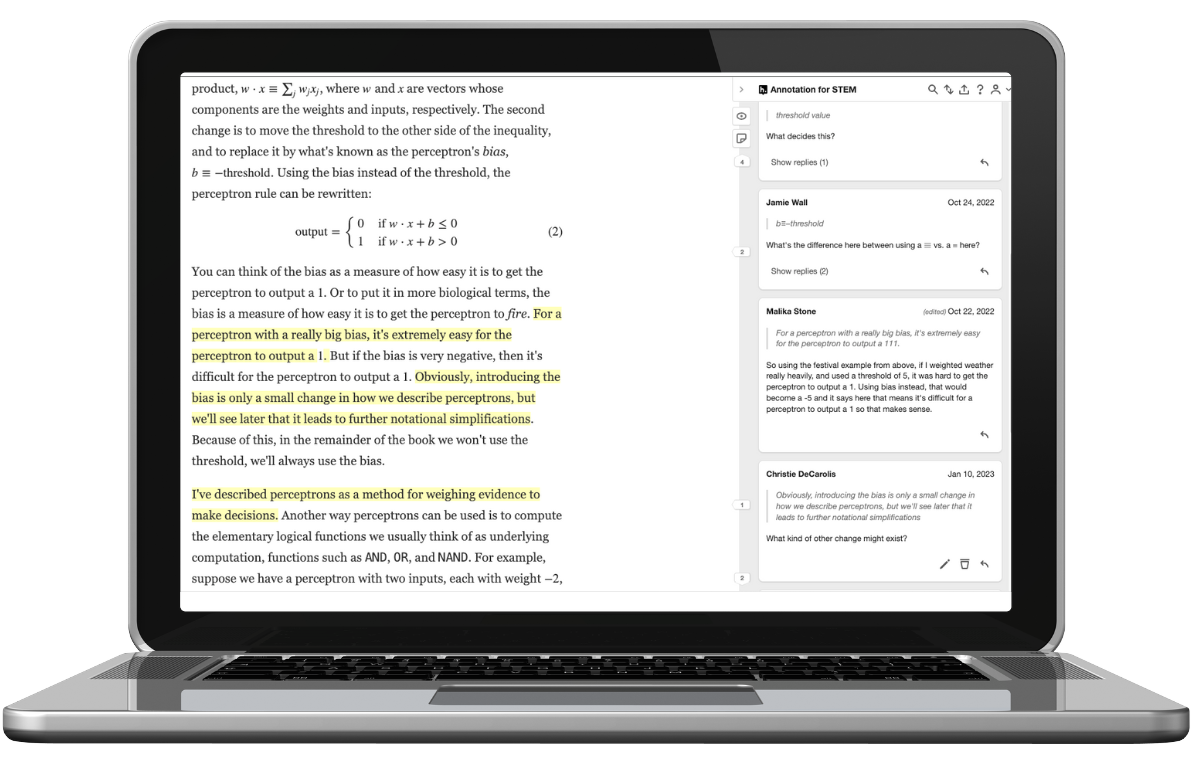Turn Content Into Conversations
Hypothesis enables students to collaborate and engage directly with course content through social annotation, boosting academic success and participation.
How Does Hypothesis Social Annotation Work?

Comment and highlight directly over content.
Students, faculty, and colleagues can highlight and comment directly on online articles, websites, videos, and more without switching platforms.

Turn Annotations into Discussions.
Students, faculty, and teams can share ideas, ask questions, provide insights and respond directly to annotations. Creating a dialogue directly over content.

Tag Other Users for Increased Collaboration.
Faculty, students, and teams can engage more deeply by tagging peers directly in annotations, triggering notifications and encouraging students to revisit course materials and participate in ongoing discussions.
How Hypothesis Improves the Teaching & Learning Experience:
|
Drive deeper interaction with course materials through in-context annotations and collaborative discussions. Students experience increased comprehension, higher grades, and improved critical thinking. Engaged students stay enrolled longer and Hypothesis has shown to increase retention by up to 32%. |
Video Player 00:00 00:00 |

Seamless LMS Integration for Educators
The Hypothesis online annotation tool integrates directly into your LMS—no extra logins or software needed. Educators can easily set up assignments, interact with students directly over course materials, and track engagement through our reporting dashboard.
Proven Success with Hypothesis
What Can Be Annotated with Hypothesis?
Hypothesis online annotation works seamlessly across various content types, allowing students and educators to annotate:
![]()
Webpages – Engage with online articles, research, and course readings directly in the browser.
![]()
Online PDFs – Highlight and discuss academic papers, readings, and handouts.
![]()
Videos – Bring videos to life by adding thoughts, questions, and discussions as you watch.
![]()
JSTOR Content – Engage with scholarly articles directly from the JSTOR platform.
![]()
eTexts – Enhance comprehension with social annotation in digital textbooks.
![]()
Online Articles – Dive into educational and scholarly articles, adding highlights and notes to spark deeper discussions.
Get Started with Hypothesis Today
Join thousands of educators and teams using Hypothesis to make reading more engaging, collaborative, and effective for students.


